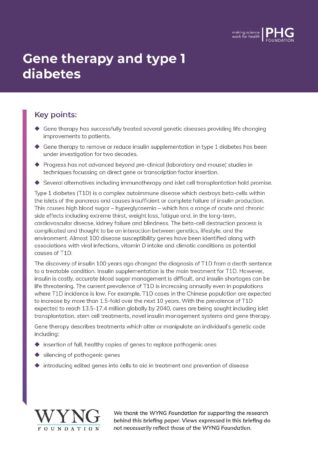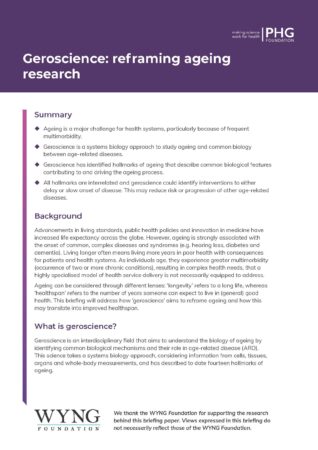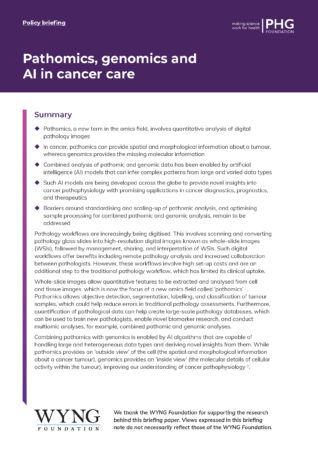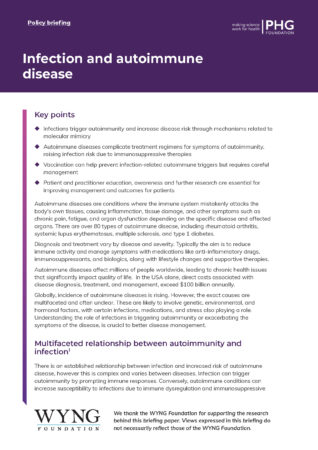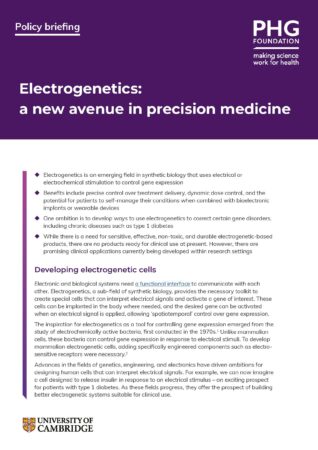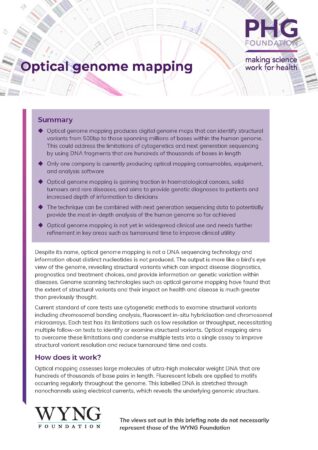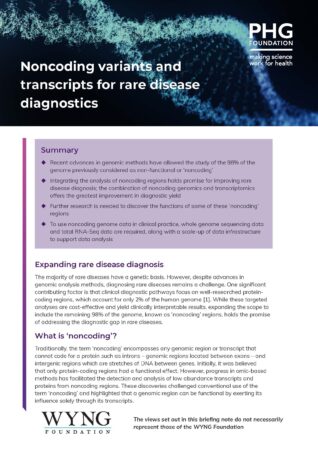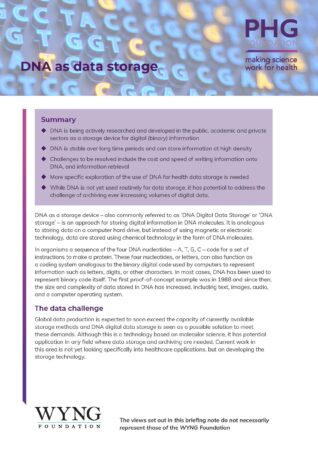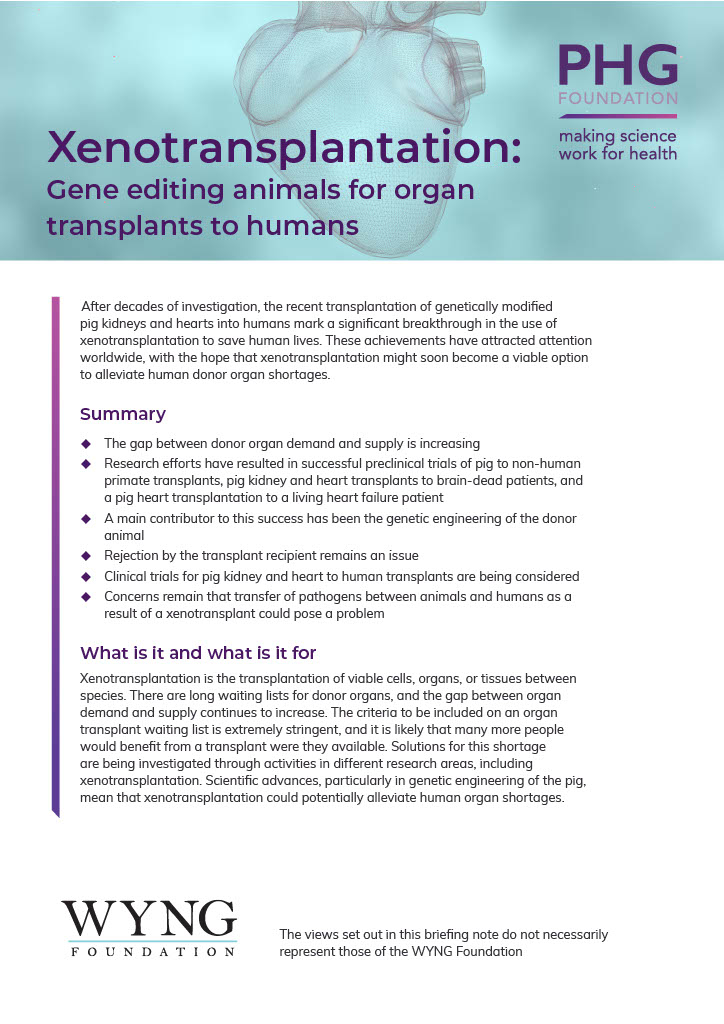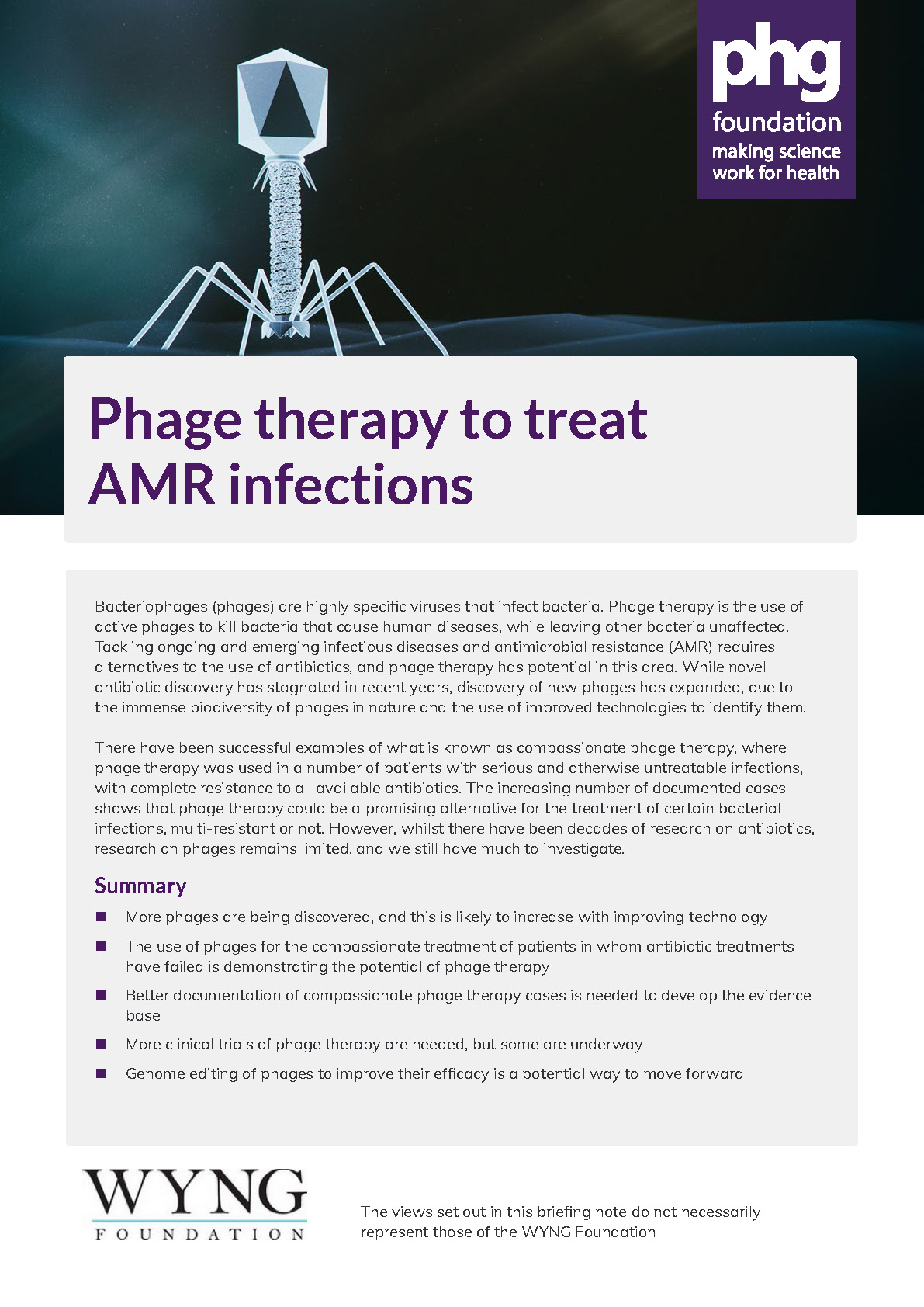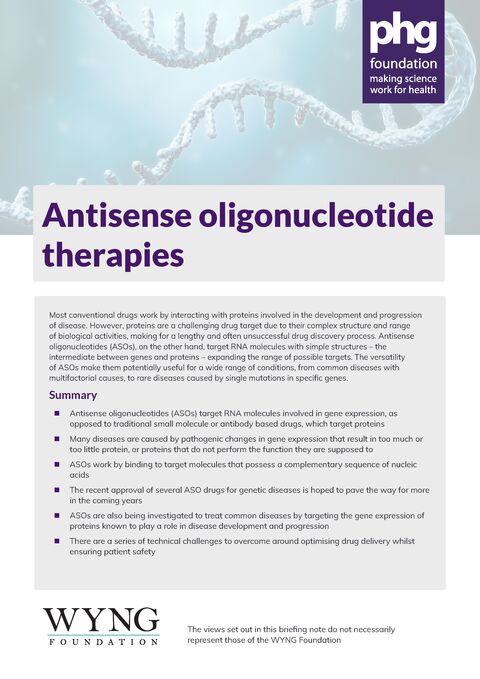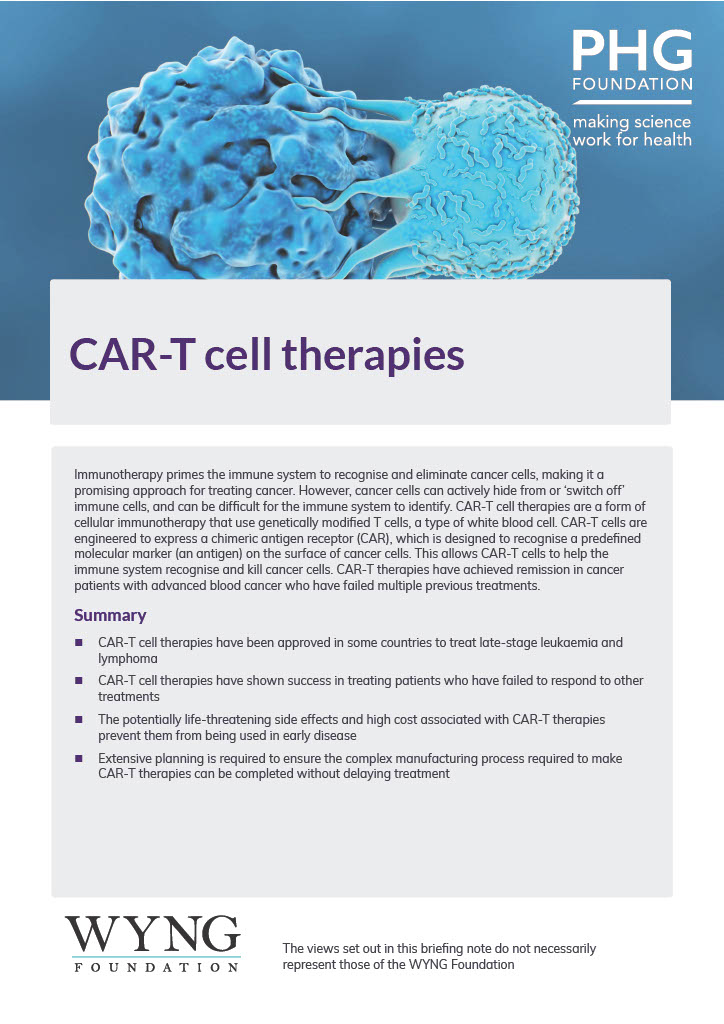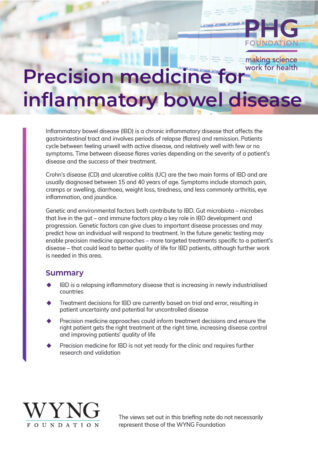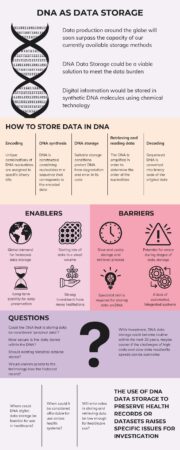Our policy briefings and explainers are part of our horizon-scanning programme to identify those novel technologies showing greatest promise for health research and care. Succinct and accessible, they offer clarity on the key concepts and challenges of novel molecular and data-related technologies emerging from research.
With support from the WYNG Foundation, we have been examining the emerging – and controversial – field of geroscience, which aims to understand the biology of ageing by identifying common biological mechanisms and their role in age-related disease. The policy briefing for this, along with one considering the likely value of gene therapy to treat type 1 diabetes, will be published in early 2025.
Gene therapy to remove or reduce daily insulin therapy for T1D has been an attractive prospect for several decades. Despite continued pre-clinical research progress has stalled due to several barriers
Geroscience is in the early days and builds on wider research into prevention of age-related diseases. While promising, there are fundamental and practical questions to address.
What is pathomics and how might artificial intelligence help scientists understand the complex interplay between pathomic and genomic-generated data? In this briefing we address these questions in the context of improving cancer care.
There is an established relationship between infection and increased risk of autoimmune disease. In this policy briefing we look at how better understanding of this complex relationship could improve patient care.
The most promising of these rapid horizon-scanning analyses often develop into an in-depth research project. You can find policy briefings for these with their related reports on the publications page, under ‘Reports’. A full list of all policy briefings is on the same page, under ‘Policy briefings’.
We also produce explainers, usually as a companion to a policy briefings. Anyone looking for a primer on the potential applications of technologies such as transcriptomics, anti-sense oligonucleotide therapies, phages and more will find these a useful resource.

